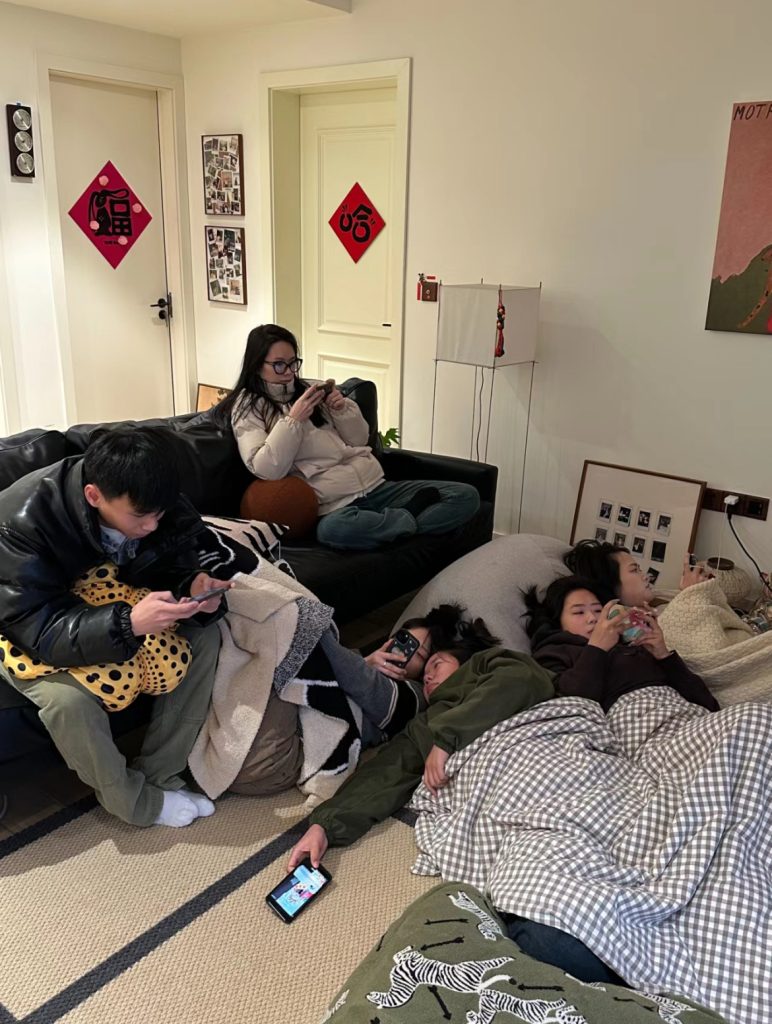
The first person I want to introduce to you on this topic is the American sociologist Erving Goffman, who is also an important figure in the theory of symbolic interaction. In his thirty-year academic career, he has developed a unique style of analyzing micro-interaction phenomena from anthropology, social psychology, behavioral science, and linguistics. he eventually published His Presentation of Self in Everyday Life in 1956, a detailed introduction to dramatization.
In The Presentation of the Self in Everyday Life (1956), Goffman proposed dramatization and defined “performance” as “all the activities of a particular participant, on a particular occasion, affecting any other participant in any way.” He compares society to a stage and its members to actors to explain People’s Daily lives. Its core concept is impression management.
Goffman believes that society and life are a big stage, and members of society, as performers on this big stage, are very concerned about how to create an acceptable image in front of a large number of present people (that is, others who participate in interaction).
In short, in interpersonal interaction, first of all, individuals want to “leave a good impression”, and “good impression” can help individuals carry out their own desired actions. Then you need to build a stage set for your own performance, with the goal of defining the situation for the observer.

Consider the realm of social media as a case in point
In fact, social media is a very good platform to present the scene in front of the stage, we always show our relatively good side on social media. Therefore, the different concepts of front stage and back stage are formed.


We can compare these images to show how Instagram influencers carefully curate their entertaining lives for public display. They often hold some sophisticated parties in front of the stage, which is their attitude to life and entertainment, in order to fit their carefully created people. The sharing of these photos also reflects the reception they hope to present. With these visual effects, they manage the impression formed by the audience, creating an advanced, refined image, although the reality behind the scenes (backstage) may be much more complex and less perfect. Perhaps this is not even her own living habits, but the space arranged as a shooting site.
By controlling what content to postя╝Мinfluencers influence how their audience perceives them. This closely aligns with GoffmanтАЩs theory of impression management.
This example also illustrates how, in the modern social media environment, individuals (both influencers and content creators) manage their public image through the contrast between front stage and backstage behaviors. It reflects platforms shape interpersonal interactions in todayтАЩs society.
Sincere communication is a false performance;
Successful dissemination relies more on cunning tricks;
The understanding of meaning lies in people’s main definition of it;
Stigmatized people care as much as anyone about how they are perceived in the minds of others.
What Goffman saw was superficial, and his analysis superficial. Those positive practices require sincere cooperation, frank communication, mutual understanding and respect among subjects. What has been proved by past human social practices will also be confirmed by future practices.


Your use of GoffmanтАЩs theory to analyze identity construction on social media is very effective, especially the distinction between тАЬfront stageтАЭ and тАЬback stage.тАЭ I agree that platforms like Instagram encourage users to manage their public image, much like actors in a performance. This impression management seems especially relevant for influencers who shape their identities through curated content.
One additional idea to consider is how this curated тАЬfront stageтАЭ identity might impact followersтАЩ self-perception. When users are constantly exposed to these idealized images, they may feel pressured to craft their own тАЬfront stageтАЭ persona to meet perceived standards, which could affect their authenticity and mental well-being. This connects to the theme of identity construction, as individuals might develop an online self that diverges from their real-life identity.
What are your thoughts on how these platforms influence usersтАЩ perceptions of authenticity? Do you think social media encourages a shift away from authentic self-expression, or is it simply providing a new medium for identity experimentation?
Hello Haoyuя╝М
your blog explores the application of Erving Goffman’s impression management theory in social media. The overall structure is clear and logically coherent, effectively combining theory with practical cases. The article starts with introducing Goffman’s theory and gradually transitions to the practical application of social media, with a clear structure and easy understanding. However, in addition to Instagram influencers, more cases of different types of social media users (such as regular users, corporate accounts, etc.) can be considered to demonstrate the application of impression management in different contexts. At the end of the article, it is mentioned that ‘sincere communication is a false performance’. This viewpoint can be further explored for its rationality or refuted to increase the depth and criticality of the article.
Hi Haoyu!
This post really nails how GoffmanтАЩs ideas about тАЬfront stageтАЭ and тАЬback stageтАЭ apply to social media today. It’s wild to think about how influencers and even regular users carefully curate what they share online to create this idealized version of their lives. It makes me wonder how much of our real selves weтАЩre hiding just to fit a certain image on these platforms. YouтАЩre totally right that this kind of тАЬperformanceтАЭ is part of how we interact with others now, but itтАЩs also a bit of a double-edged swordтАФwhile it can be empowering, it also means that what we see online isnтАЩt always the full picture.